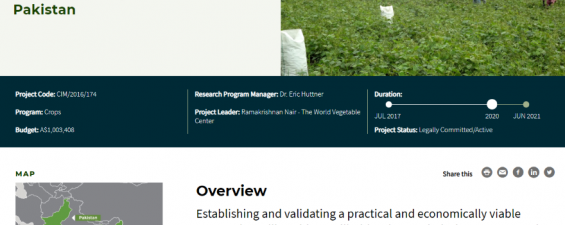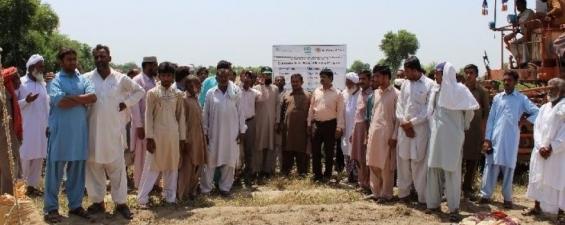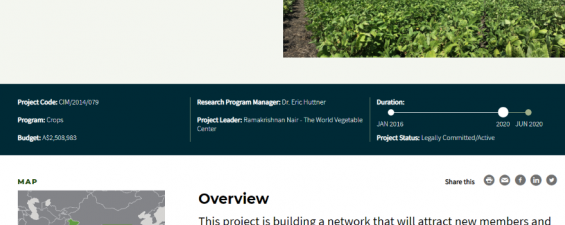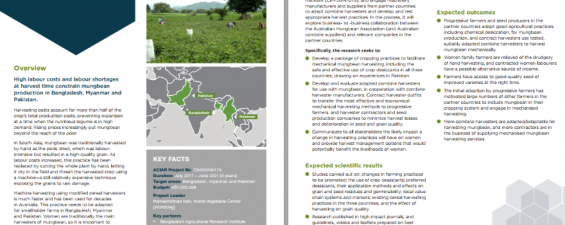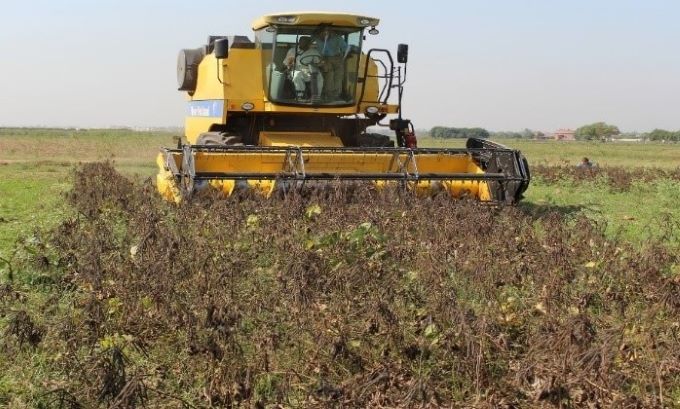
ACIAR’s mung bean research is both multidisciplinary and international. Pakistan partners with other south Asian producers, with a particular focus on the challenges and benefits of machine harvesting. Other aspects include breeding, agronomy and the social impacts of production shifts.
Background
Like other pulses, the humble mung bean provides essential nutrition to both humans and to the soil. High quality seeds are also in demand internationally for bean sprout production.
In South Asia, mungbean was traditionally harvested several times by hand (mainly by women) as the pods dried down. This resulted in a high-quality grains but was very labour-intensive. The alternative involves cutting the whole plant by hand, letting it dry in the field, and machine threshing. Machine harvesting is much faster and has been used for decades in Australia. It needs to be modified to be suitable for the smallholder farms of Pakistan, by adapting cereal harvesters.
Inevitably, replacing hand-harvesting will impact rural women – either by potentially reducing unpaid drudgery or by taking away an important source of income. As with any technical intervention, it is essential to understand such potential social impacts and share these with policymakers.
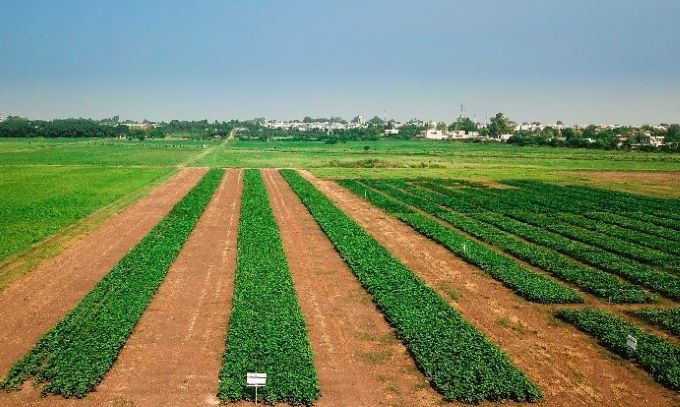
Current Research
Improved Mung bean Harvesting and Seed Production Systems for Bangladesh, Myanmar and Pakistan (CIM/2016/174)
This project will build on the International Mung bean Improvement Network (CIM-2014-079), and engage machinery manufacturers and suppliers from partner countries to adapt combine harvesters and develop and test appropriate harvest practices.
The project’s objectives are to:
- Develop a package of cropping practices to facilitate mechanical mung bean harvesting, including safe and effective use of crop desiccants.
- Develop and evaluate adapted combine harvesters for use with mung bean, in cooperation with combine harvester manufacturers and contract harvester outfits and transfer the most effective and economic mechanical harvesting methods to progressive farmers, harvester contractors, and seed production companies to minimize their harvest losses and cause least deterioration in seed and grain quality.
- Communicate the likely impact of a change in harvesting practices on women to all stakeholders and provide management options that would potentially benefit the livelihoods of women.
Partners
- Bangladesh Agricultural Research Institute
- Department of Agricultural Research, Myanmar
- Pakistan Agricultural Research Council
- Australian Mungbean Association (AMA)

